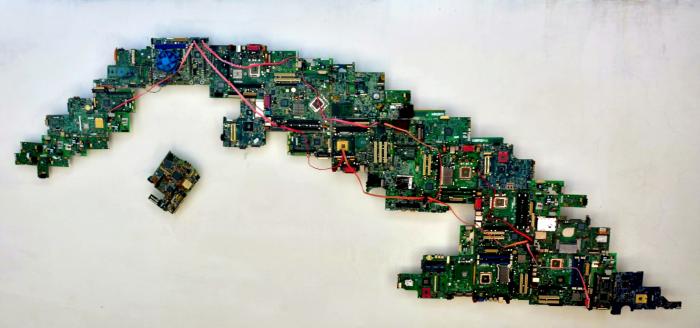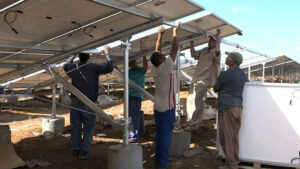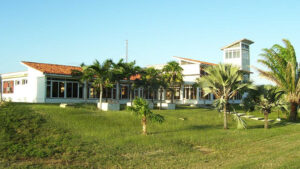We have long had the professional capacity to develop the ia in all areas, said Díaz-Canel.
Cuba has the potential to make rapid progress in the introduction of artificial intelligence (ia); we have long had the professional capacity to develop it in all areas, said the First Secretary of the Party’s Central Committee and President of the Republic, Miguel Díaz-Canel Bermúdez, yesterday, in a meeting with scientists and experts.
The world is moving very fast in this area, and we cannot be left behind; we have to do the same as was done with biotechnology, because we have the capacity to be at the forefront in a short time, he emphasised.
He stressed that we can develop ia in all university courses, including the social sciences, and also in the medical sciences, where much progress is being made in the use of this tool worldwide.
Doctor of Science Walter Baluja García, Minister of Higher Education, insisted that our universities employ professionals who have graduated with honours from foreign universities in ia. In Cuba, he said, there is a more advanced development than in many other countries.
The Minister of Communications, Mayra Arevich Marín, reported on the activities being carried out to verify the digital transformation strategy up to 2030, and the boost to be given to the ia with the incorporation of the University of Computer Sciences and Cujae, as well as the participation of students, including those from municipal university centres, through contracts and payments; an initiative that is making headway with the help of the Science and Innovation Financial Fund (Fonci) of the Citma.
Díaz-Canel pointed out that it is necessary to extend the results in ia that are obtained in one entity or sector to others that need it, so that it can be used as a service.
The meeting of the First Secretary of the Central Committee of the Party and President of the Republic with scientists and experts, in videoconference format, this month focused on the Strategy for the development of artificial intelligence in Cuba, giving continuity to the exchange he held on the subject at the beginning of the year.
The proposal of actions in the Human Capital axis was the focus of the meeting. Professor Denys Buedo Hidalgo, Director of Computerisation at the Ministry of Higher Education, gave a presentation in which he explained that the general objective in this area is to «prepare human capital for the economic, cultural, political and social transformation imposed by the responsible use and development of Artificial Intelligence».
The specific objectives of the strategy include updating curricula at all levels of education, including content that fosters the development of digital competences in students, in order to facilitate their adoption of AI and its applications.
It is also intended to improve the teaching-learning process and to incorporate the use of ia to create personalised educational pathways that adapt to the needs, abilities and learning pace of each student.
It also aims to implement ia professional development and training programmes aimed at teachers and all those involved in the educational process; to facilitate the understanding and adoption of ia in informal educational environments, through resources and activities designed specifically for this purpose; and to develop ia training plans for personnel involved in science, research, innovation and for State and Government officials.
Doctor of Science Rafael Bello Pérez, from the Marta Abreu de Las Villas Central University (uclv), considered to be the founder of the development of artificial intelligence in Cuba, agreed with the President and proposed creating a director programme in each university to promote cutting-edge initiatives in each career.
Alejandro Rosete Suárez, PhD in Science, from the Department of Artificial Intelligence and Computer Systems Infrastructure at Cujae, and another of the national leaders in the field, agreed. He exemplified that last month, out of 12 theses that were defended in the Faculty of Computer Engineering, seven dealt with ia.
«Cuba, he said, does not have a problem with training in artificial intelligence; it has world-class specialists, what we need to do is use them more.
This week’s exchange with experts and scientists was also led by the member of the Political Bureau and Vice-President of the Republic, Salvador Valdés Mesa, and Deputy Prime Minister Eduardo Martínez Díaz.
In attendance were Central Committee member and head of the Department of Attention to the Social Sector, Susely Morfa González, and Deputy Prime Minister Inés María Chapman, as well as several ministers, among other officials. (Author: René Tamayo León)




